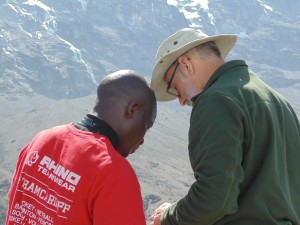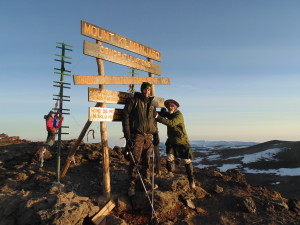“Paternalism” is one of those words that has a hell of a lot of power. On several occasions, I’ve seen it used as a trump to shut down an argument: saying “But that’s paternalism” is, at least sometimes, treated as a way of showing that anyone arguing in favour of the allegedly paternalistic action is an imbecile, and has therefore lost the argument by default. I suspect that this is due to a bastardisation of the (already iffy) “Georgetown Mantra”; but it does seem to be a position horribly common in medical schools. It’s also very unsophisticated. Whether or not something is paternalistic seems to me to be less important than whether it’s justified. Something might be unjustified, and the reason for that might be because it’s paternalistic; but it doesn’t follow from that that no paternalism could be justified. In just the same way, too much bleach or bleach in the wrong place is something you’d want to avoid; but it doesn’t follow that you should avoid bleach at all times and at all costs.
I want here to tell you a story based on something that happened just over a week ago. My Dad and I had – oh, don’t ask us why – signed up to climb Kilimanjaro. We were following the Machame route, which slowly circles around the mountain for four days, before a final push at midnight on the fifth in time for sunrise at the top. Most of the campsites are just a shade under 4000m above sea level; this gives you some time to acclimatise. However, on the third day, you do have to go up and over a pass that’s around 4600m, before descending to about 4000m to camp at a place called Barranco. Neither Dad nor I was taking Diamox, which is the main drug used to combat the effects of altitude. (I’m suspicious of it: I worry that it might mask the early signs of altitude problems, and so leave you more vulnerable to something more acute. After all, if you get a headache, you’ll slow down naturally, won’t you? Remove the headache, and you might keep on doing too much until you get much iller.). On the third day we both got thumped by altitude sickness. That night, having somehow mustered the energy to unroll our sleeping bags, but unable even to eat, we both decided that we’d had enough. We were going back down.
I was disappointed – but I’d failed to get to the top of Kili almost exactly 15 years ago, in August 1999, having reached 4800m before giving up; and I’d failed to get to the top of Tungurahua four years before that on an interesting-ways-to-kill-the-sixth-form school expedition, having given up at approximately the same altitude. Maybe 5000m or so is just my genetic limit; apart from me and Dad, everyone else in the group seemed to be fine. It could be that I’m not made for mountaintops, just as I’m not made for living underwater.

So, at dawn on the fourth day, we told our guide, Living, that we were out. He gave us Diamox, and an anti-emetic, and told us that we had two options to get off the hill. From Barranco, we could either turn back and go the way we’d come the day before, and then join a descent route from the previous campsite; or we could do today’s climb up and over Great Barranco, and descend from the next camp. The climb would not be insignificant, but it wouldn’t take us as high as yesterday’s, and it was only a few hours walk between camps. Obviously, we chose the latter as the less bad option.
Having topped up Living’s advice with ibuprofen and as much tea and toast as we could handle, we walked; and as we walked, we began to feel better. By mid-morning, we were pretty much back on form.
Now, Living really knew his stuff. He’d been checking up on us since that third evening, and it was plain to me from that evening that he wouldn’t let us continue the climb if he didn’t think we were capable of completing it. But I also wondered if the converse might also be true: that he wouldn’t let us turn back if he thought that we could handle the ascent to the summit.

The upshot is that we both got to the top of the hill less than 48 hours later. It was ridiculously hard work, but we made it. In fact, Dad was the first person from our group to make it to the top, reaching Uhuru Peak at about 6:45 on the morning of the fifth of August. It’s amazing how you can go from feeling wretched to feeling surprisingly good in the few minutes it takes the sun to rise.
So we got back to Moshi after seven days on the hill, and met up with Living and the other guides that evening, where Living admitted something that I had suspected to have been the case anyway: that of course there’s an escape route down from Barranco camp. That stuff about choosing to turn back or go on had been false. As I suspected, he wasn’t going to let us turn back, given his belief that we could reach the summit (he, and all the guides, had been keeping an eye on every walker and assessing us at every point on the walk anyway), and that in some sense we really did want to. After all, we’d spent a lot of money to get there, so a desire to see the top does seem like a reasonable thing to infer.
What Living did was, undoubtedly, paternalistic. He acted according with what he thought were our fundamental desires, rather than on what we said we desired (and actually did desire) at a given time. More: he told a lie in order to get us to achieve what he judged – accurately – that we really wanted.
Were that a clinical situation, many people would be having the vapours if they came across behaviour like that. The GMC would be running around the room screaming, and the MDU would tell the clinician that he was, really, on his own from now on.
And yet…
I find it hard to accept that either Dad or I was wronged by Living. (Certainly neither of us was harmed by him.) Admittedly, the fact that a person doesn’t think he’s been wronged isn’t a sign that he hasn’t been – wrongs have to do with the actor, not the acted-upon. But, still: I can’t persuade myself that Living’s paternalism was unjustified. In fact, I think it was wholly justified. I’m glad he did it. If I’m right that it was justified, here’s an instance of paternalism that is not only not-wrong, but that might even have been morally required in some sense.
Why does this matter? Simply because I think it helps break the back of the idea that merely pointing out that something is paternalist is enough to tell us that we shouldn’t do it. Of course, that’s pretty obvious when you think about it; but it is worth thinking about. I’ve got a sense that it’s not thought about nearly as often as it should be. It might still remain the case that paternalistic actions are never justified as a matter of fact, or that Living’s might be the only justified paternalism that there has ever been. That doesn’t matter when it comes to assessing the principle, though. What matters is that it indicates that paternalism has to be taken on its merits, and in context. Simply to make “Yah! Boo! Paternalism!” noises simply won’t do. I’ve got the aching thighs and chapped lips to prove it.
Oh: and I’ve been persuaded of the virtues of Diamox. As if I’m ever going to climb another bloody mountain ever again.